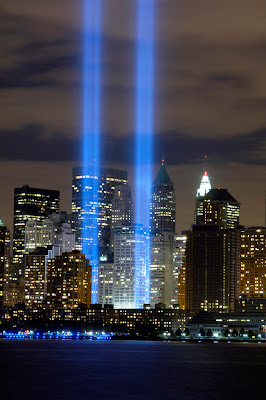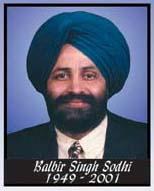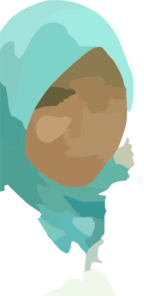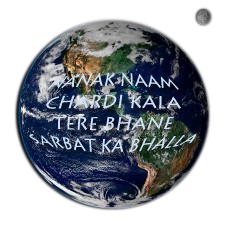A Decade after 9-11
Tejwant Singh Malik
How time passes in a flash! It will have been 10 years on September 11th since the whole world was shaken on that dreadful day, which showed nothing but hatred, disdain and anger towards the innocent Americans of all hues, creeds and faiths. Why us? This question still rings in my ears daily as a Sikh American. And when I say us, I do not mean those of a particular ethnicity or religion but I am talking about all of us who are fortunate enough to call ourselves Americans.
However, there is a caveat. Some of us suffered the retaliations by our fellow Americans unjustly and Sikhs were the victims of that. We Sikh men wear turbans and we became the punching bags because we were mistakenly seen as Arabs and Muslims and were attacked mercilessly with words and with violence. We became part of “the killing fields” when one of our own, Mr. Balbir Singh Sodhi, a gas station owner in Phoenix, Arizona, who was just taking care of the flowers outside his business was gunned downed by a fellow American. This brave Sikh was mistaken as a Muslim by the shooter because of his turban. The prosecutors wanted the death penalty but fortunately, the Sikhi values prevailed and the Sodhi family fought diligently to get him life imprisonment rather than death for which he was thankful.
This is just one incidence out of many. Many Sikhs on 9-11 were dragged out from the trains and got arrested; some were beaten by their fellow Americans just because they looked different with their turbans on.
I own a gas station in Henderson and was also the victim of similar thing. A talk show radio host at KDWN 790AM radio station happened to come to my gas station to buy something and later during his show, he mentioned about me in a derogatory manner and gave my address thinking in his mind that I was a Muslim terrorist. Many of my customers came in running to tell me this because I do not listen to talk radio. I did call the station and demanded an apology on the air which was ignored. But I am also thankful to many fellow Americans and the Police officers whom I happen to know in Henderson, who came and offered their help off duty. They offered to take my kids to school and to stay there to make sure they were not harmed. This was caring American spirit working.
To be honest, I have never felt prouder to be called a Muslim which I and my fellow Sikhs are often shouted with, due to sheer ignorance of many. It matters not whether one is a Muslim, a Sikh, a Christian, a Jew, or a Buddhist, and even if one is an atheist, violence is violence, and terrorism is terrorism. What happened to us as Americans on 9-11-01 is unforgivable.
This is the reason we are at war with those who did this to us and were able to catch and kill Osama Bin Laden, the mastermind of the atrocities, which took place on 9-11.
Hate crimes still happen daily against the Sikhs. Many Sikhs have been killed in this past decade, in New York, Sacramento and other places. Amanpreet Singh Mander of Las Vegas was shot to death a few months ago when he went to the bank to make a deposit just across from the 7-11 he owned with his wife. As a result, he left a widow with two young children behind.
Unfortunately, the killer has not been caught inspite of the cash rewards offered by Crime Stoppers with the help of Sikh community and others. We still remain the victims of what happened on the horrendous day 10 years ago. Sikh Advocacy groups like SALDEF and Sikh Coalition are helping educate the FBI, TSA, local Police and others about Sikhism, so that these crimes against an innocent community, who had nothing to do with 9-11, can stop.
Despite all this, we Sikhs remain in high spirits because our Scriptures, Guru Granth, give us the tools by instilling the following:
I have no enmity, I see no stranger.
This is a personal essay by our SPN forum member Tejwant Singh Malik
Tejwant Singh Malik
How time passes in a flash! It will have been 10 years on September 11th since the whole world was shaken on that dreadful day, which showed nothing but hatred, disdain and anger towards the innocent Americans of all hues, creeds and faiths. Why us? This question still rings in my ears daily as a Sikh American. And when I say us, I do not mean those of a particular ethnicity or religion but I am talking about all of us who are fortunate enough to call ourselves Americans.
However, there is a caveat. Some of us suffered the retaliations by our fellow Americans unjustly and Sikhs were the victims of that. We Sikh men wear turbans and we became the punching bags because we were mistakenly seen as Arabs and Muslims and were attacked mercilessly with words and with violence. We became part of “the killing fields” when one of our own, Mr. Balbir Singh Sodhi, a gas station owner in Phoenix, Arizona, who was just taking care of the flowers outside his business was gunned downed by a fellow American. This brave Sikh was mistaken as a Muslim by the shooter because of his turban. The prosecutors wanted the death penalty but fortunately, the Sikhi values prevailed and the Sodhi family fought diligently to get him life imprisonment rather than death for which he was thankful.
This is just one incidence out of many. Many Sikhs on 9-11 were dragged out from the trains and got arrested; some were beaten by their fellow Americans just because they looked different with their turbans on.
I own a gas station in Henderson and was also the victim of similar thing. A talk show radio host at KDWN 790AM radio station happened to come to my gas station to buy something and later during his show, he mentioned about me in a derogatory manner and gave my address thinking in his mind that I was a Muslim terrorist. Many of my customers came in running to tell me this because I do not listen to talk radio. I did call the station and demanded an apology on the air which was ignored. But I am also thankful to many fellow Americans and the Police officers whom I happen to know in Henderson, who came and offered their help off duty. They offered to take my kids to school and to stay there to make sure they were not harmed. This was caring American spirit working.
To be honest, I have never felt prouder to be called a Muslim which I and my fellow Sikhs are often shouted with, due to sheer ignorance of many. It matters not whether one is a Muslim, a Sikh, a Christian, a Jew, or a Buddhist, and even if one is an atheist, violence is violence, and terrorism is terrorism. What happened to us as Americans on 9-11-01 is unforgivable.
This is the reason we are at war with those who did this to us and were able to catch and kill Osama Bin Laden, the mastermind of the atrocities, which took place on 9-11.
Hate crimes still happen daily against the Sikhs. Many Sikhs have been killed in this past decade, in New York, Sacramento and other places. Amanpreet Singh Mander of Las Vegas was shot to death a few months ago when he went to the bank to make a deposit just across from the 7-11 he owned with his wife. As a result, he left a widow with two young children behind.
Unfortunately, the killer has not been caught inspite of the cash rewards offered by Crime Stoppers with the help of Sikh community and others. We still remain the victims of what happened on the horrendous day 10 years ago. Sikh Advocacy groups like SALDEF and Sikh Coalition are helping educate the FBI, TSA, local Police and others about Sikhism, so that these crimes against an innocent community, who had nothing to do with 9-11, can stop.
Despite all this, we Sikhs remain in high spirits because our Scriptures, Guru Granth, give us the tools by instilling the following:
I have no enmity, I see no stranger.
This is a personal essay by our SPN forum member Tejwant Singh Malik







